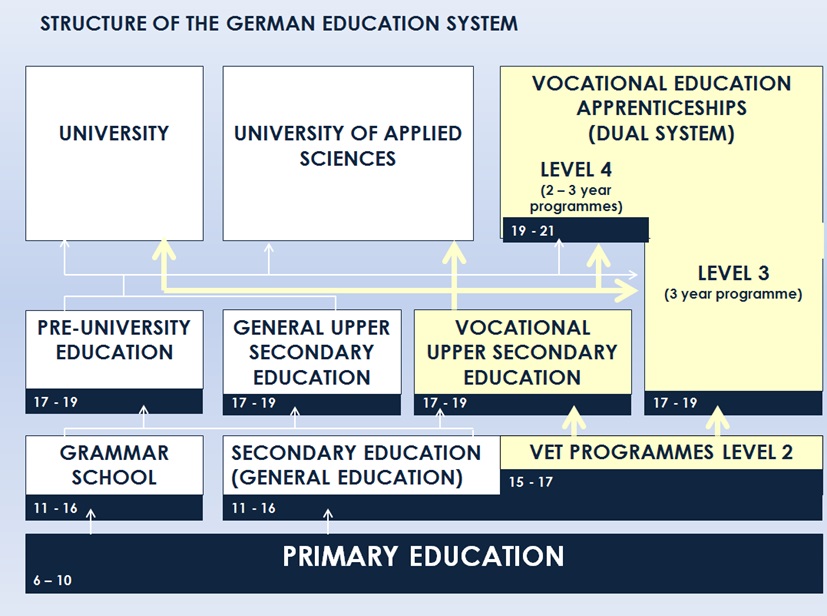
The northern star has, for centuries, served as a guiding beacon for travellers and explorers finding their way. In much the same way, developing economies need their own inspired focus upon which to chart and craft their future. The Caribbean region may very well find this in education. At present, it’s not uncommon for education to be the second, if not the largest budget allocation for many of the region’s biggest economies. This holds true for the most recent budgets of Jamaica, Barbados and Trinidad and Tobago. Is this enough then? If history has taught us anything is that the quantity of money thrown at something isn’t always the deciding factor. Indeed, new policy, reform and cross-economic integration are also much needed.
Reforming Education
What do we mean by this? Simply put, holistic and broad development of our human capital is needed. Many people oftentimes confuse this to mean a larger curriculum or broader emphasis on a greater repertoire of topics. This is far from the truth. Consequently, essays and case studies such as those by the Non-Partisan Education Review and Morgan International have dissected the nature of quantity vs quality in education. It was noted that the US system and those which emulate it prioritizes the former while higher rated educational systems such as those in Asia and European states place emphasis on quality.
The added benefit to such a system is far less stress and pressure for the individual student while allowing advancement based on aptitude and skill. Consider the educational structure of Germany for example. After primary school, students progress to one of the various tiered secondary schools which occupy an overall specialization. They range from those following a traditional grammar school model to those that combine apprenticeship with learning a ‘trade’ while others occupy heavily academic roles in preparation for higher education at university.

Of particular interest is the fact that none of these tiers in education are considered ‘superior’ to the other. Students are actively encouraged to play to their strengths and, through apprenticeship, are even guided towards careers with experience earned during their time at school. Indeed, one tier of these schools even prioritizes learning with specialization in a particular sport or athletic field. This compared to the region’s history of education rooted in the British Grammar school model wherein certain subjects and fields are considered more ‘prestigious’ than others whilst others are viewed as undesirable or relegated to a ‘second class’ status. Unfortunately, such sentiments only feed the paradigm of economic monoculture. In order to escape this yolk, education emphasizing the need for skill and advancement in numerous fields is required. Diverse education fuels diverse development.
Professional Teachers For Professional Students
If we want a higher quality of students we also require a higher quality of teachers. This means reassessed requirements but also improved pay and benefits. For example, teachers should be able to holistically contribute to a child’s development and approach tutelage using modern, nurturing methods. A piece by Study International notes that better-paid teachers tend to result in better students. Additionally, another analysis from Education Week observed that teachers receiving improved compensation were oftentimes smarter and more rounded. The rationale is simple. More pay means more incentive and more incentive fosters an environment more propitious for self-improvement.
The impact of such an initiative won’t be immediately measurable however and would instead become apparent over time. This as newer generations of pupils and teachers emerge from the system. Thus, as with any business endeavour, there is a degree of risk-taking when going down this path. Yet both the external evidence and the reality of current challenges are ahead of us and remain unchanged.

Contending With Costs
Consequently, these sorts of reforms may prove to be quite contentious in the Caribbean. For one, with many attaching notions of status and prestige to education, a meritocratic, tiered system, even if emulated slightly from that of a nation like Germany’s, would likely be met with great opposition from both public and private interests. Regardless, if nations wish to produce skilled, all rounded and multi-faceted individuals to join their workforces and be the next generation of innovators and entrepreneurs, reform is necessary. It will be up to those in power to skillfully if slowly, educate, agitate and gradually institute policy changes.
Furthermore, how can smaller Caribbean nations hope to engage in such a pursuit given the inevitable increases in costs? As previously mentioned, education stands as one of the biggest sources of expenditures in many budgets. Undoubtedly this will increase but should it come at the expense of other areas? The answer is obviously no. Therefore, in seeking to mitigate this obstacle, regional cooperation may be imperative.
Pooled resources, planning and finances will lead to immeasurably improved results for all parties involved. With that said, in our next piece, we’ll continue to expand on this undoubtedly complex and multifaceted topic. Of particular note, we’ll be looking at the economic side to things as well as assessing other reforms and initiatives that are both viable and beneficial. These include adopting digitization in education to cut costs as well as keeping in league with changing global economic trends.